
Where in the heck is Tonga?
The Kingdom of Tonga is made up of three island groups totaling 169 Polynesian islands in the South Pacific, about 1300 miles north of New Zealand and 2300 miles east of Australia. Not to be confused with The Conga, a dance, or The Congo, a country in Africa! It has about 100,000 residents, the majority of whom are on the main island of Tongatapu. We sailed only in the Vava’u group so far, a collection of 41 islands with only 14,000 people, about 200 miles north of the main island.
In some of my darker moments when evaluating whether to continue our voyage across the South Pacific from French Polynesia, I questioned whether there was really that much more to see. I mean, it is just a bunch more islands, right? Wrong! Tonga is as different from French Polynesia as it can be. Geologically, its formation is totally different. The sailing is totally different. The dress and customs are totally different. But most importantly, being there filled our hearts with a warmth and humanity that was absent in the French-dominated, more touristy Society Islands of French Polynesia.
There is a lot more to say about our time in Tonga – the sailing, the anchorages, the friends we met, the visit from our son Dan, etc., but I will cover those in a separate blog entry. This one focuses mostly on the Tongan culture.
Core Values
Respect, humility, collectivism, modesty, and hospitality. These are all core concepts of the Tongan culture. They are part of the “Tongan Way,” which also includes a huge Christian emphasis; the importance of one’s family; and a relaxed, gentle and friendly attitude towards life. They avoid outward signs of wealth or affection, and dress modestly. There is almost no crime; thievery is so disrespectful that fear of shame prevents it. The yachts for charter there don’t even have locks. The King gives every family eight acres, so there are no homeless. No one brags about how much money they have; how shameful that would be! And so would raising your voice at someone in anger; you should respect them with humility and modesty even if they don’t do the same to you. The elderly command the most respect, of course. And be careful if you admire something owned by someone else; likely they will feel obliged to offer it to you. Having enough to be able to share with others is a matter of pride; each person who shares stands taller and gains greater respect, which is a highly coveted virtue, in the eyes of the community and The Lord.
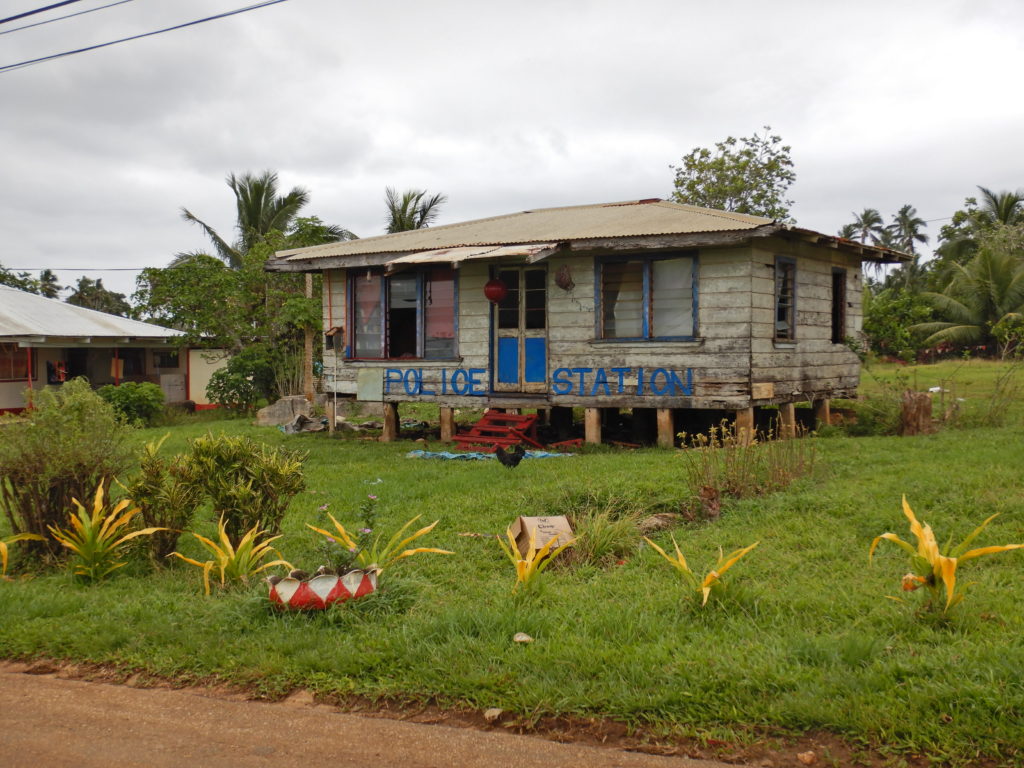
Here are a few of our experiences of the Tongan Way:
- No matter how loud, rude, demanding or insulting the sailors from foreign countries were at the local cruisers’ hangout, the waitresses were always soft spoken, reserved, and quiet, often keeping their eyes down. This was not out of deference – in private conversations they were not deferent at all – but because it would reflect badly on them as individuals to mirror this foreign “Palangi” behavior.
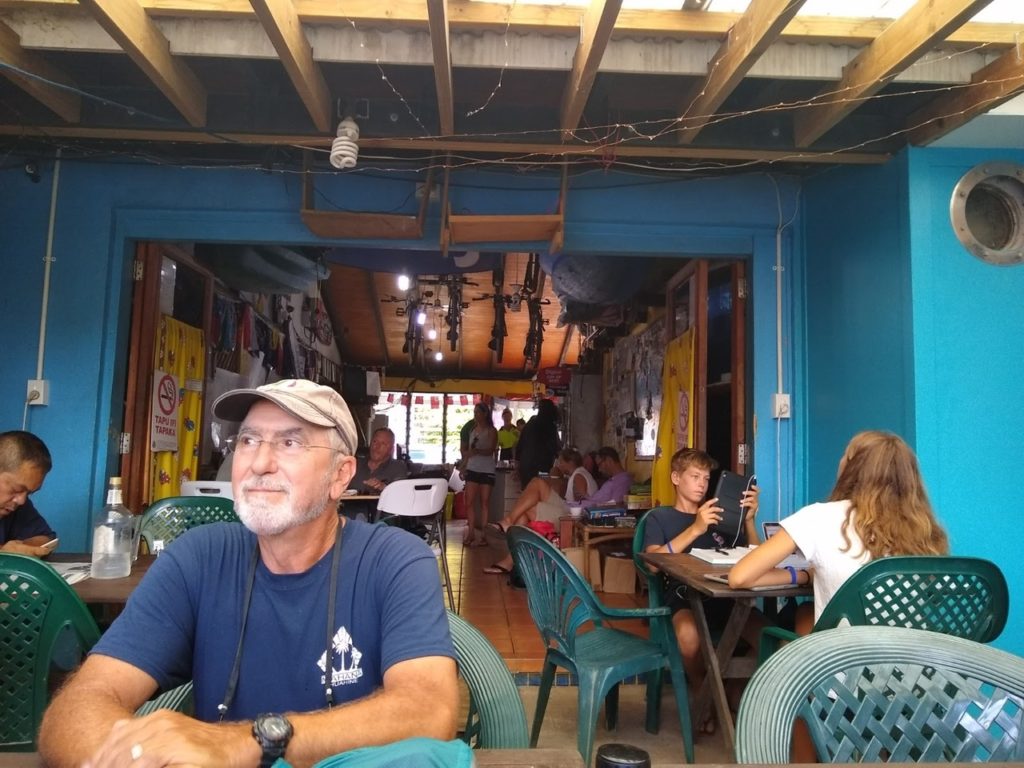
- Rick and I went into the Pearl Center in Vava’u and asked the young woman who greeted us if there was a presentation available to tell us about the unique Mape Pearls made only in Tonga. I hadn’t realized that she had immediately launched into her practiced presentation, so I kept interrupting her with questions. She finally kindly smiled at me and said, “I will address that soon.” I realized at that point how rude my interruptions must have seemed to her, but she never showed any sign of irritation, being gentle, articulate and soft spoken the entire time.
- When a group of cruisers visited a local grammar school as part of a cultural exchange, all the parents and teachers brought an abundance of homemade dishes and put on a huge feast for us, way more food than we could possibly eat, even though the event was free.
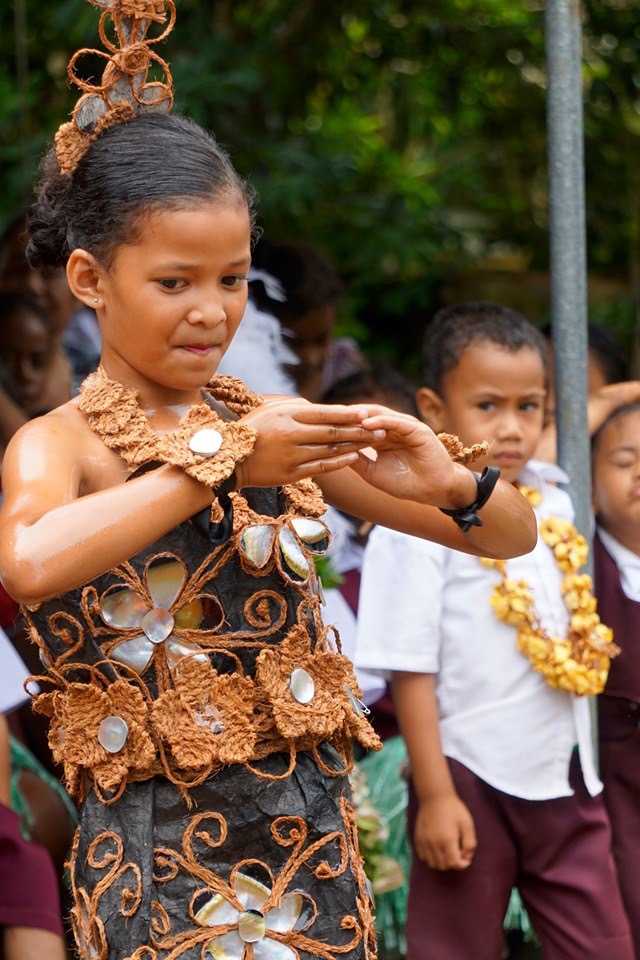
- Before attending a church service in a small, remote village on an island accessible only by boat, the minister explained to us that there would be a collection during the service. He very carefully explained that this money was not for the village because their people had everything they needed; it was to give to the Church headquarters so they could distribute the collected money to those in need in other countries. He was telling us this while we all sat on a plastic mat over a dirt floor in a hut made out of pieces of corrugated aluminum, located adjacent to the church. The church was a single, small room with missing floor tiles and badly in need of new paint. The people in this village had no electricity. After the service, those of us Palangi who attended the service were served a full meal. One of our friends who helped prepare the meal said she was using the back of a kettle as a cutting board because there was only one cutting board in the kitchen. Yet they had everything they needed? I think not, but they would rather take pride in having enough to give away, than keep the donations for themselves.
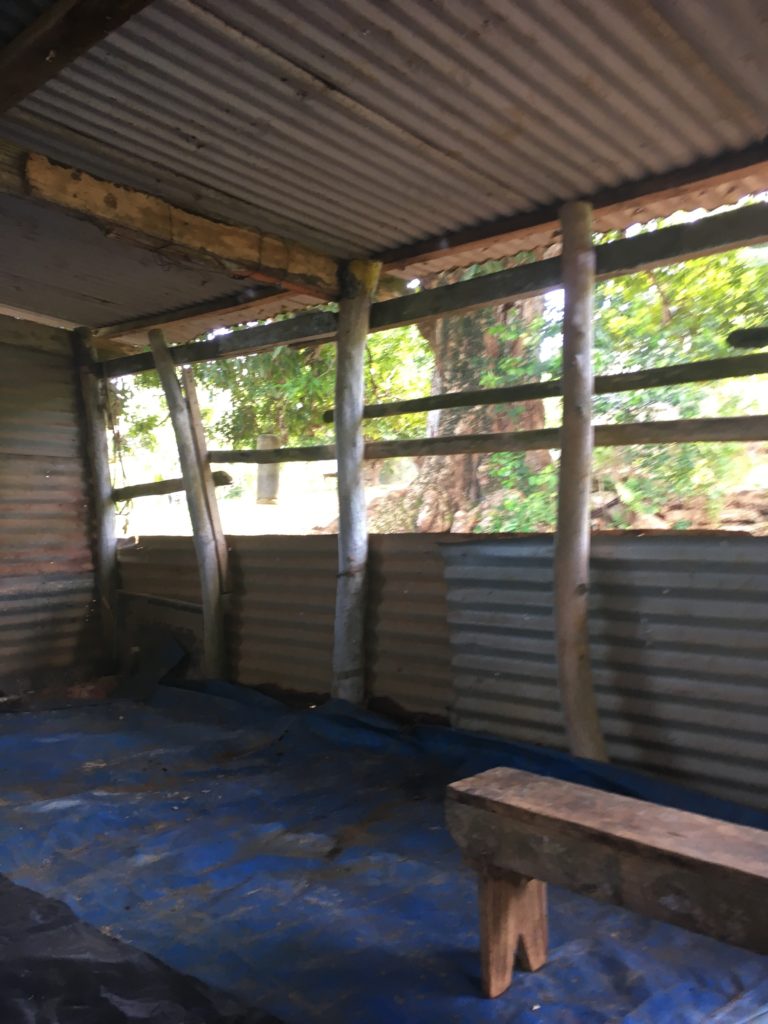
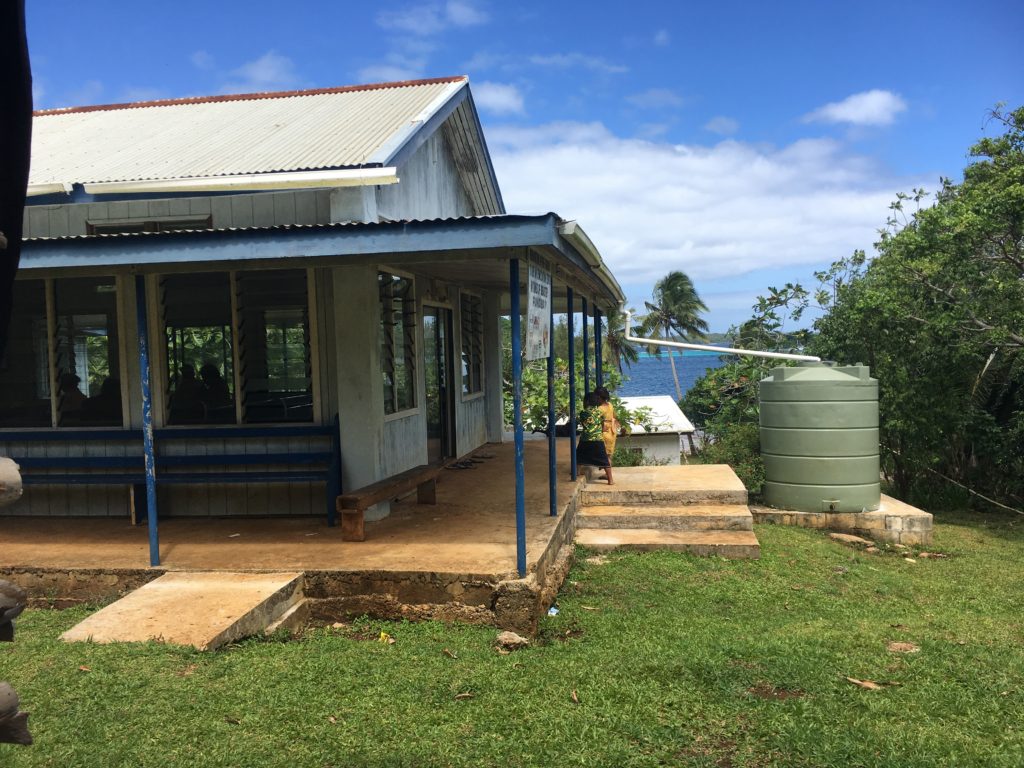
Collectivism and Interdependence
“How nice,” you might say. But taken as seriously as the Tongans take these concepts, ingrained in their very being from birth, they make for an entirely different paradigm than western culture, especially when compared to the United States. For example, can you imagine the U.S. embracing a collectivistic culture, where individualism is frowned upon? Tonga’s culture is group-oriented and interdependent with one another, where prioritizing individual’s personal interests over the group’s interests is discouraged, even shameful. In Tonga, it is common for someone to forfeit their day’s income by staying home because the neighbors need them to help restore a fence. Yeah right. That would fall flat in the U.S. It would be more like, “Let me look at my calendar and let you know when I am free, and you can work around that!”
One example of that spirit of collectivism and interdependence we experienced was in a remote anchorage where we were invited, for a small sum, to partake in a luscious pig roast and feast, along with the other cruisers in the anchorage. It was put on by the only inhabitants of the adjacent island. The feast was delicious. The father and son of the island family repeatedly came by our boat to ask us for assistance and favors: first the son flagged us over to the beach in our dinghy to ask for a ride out to a boat in the anchorage; we gave it to him. Then his Dad asked for a loan of money, to be paid back when we came to a feast that night. We loaned it to him and he did pay us back. Next, the father asked to borrow a spark plug wrench, but he never actually came by to pick it up that day. The next day as we were about to leave the anchorage, the son came by and asked for the wrench again, as well as assistance in getting his chainsaw working again, followed by another visit to ask for a bottle of booze! We said no to the wrench at that point because we were weighing anchor to leave and there was no way for them to get it back to us, we only had one, and we couldn’t replace it in Tonga. And we just didn’t feel right about giving the booze. Meanwhile, other folks in the anchorage were doing favors for this family as well.
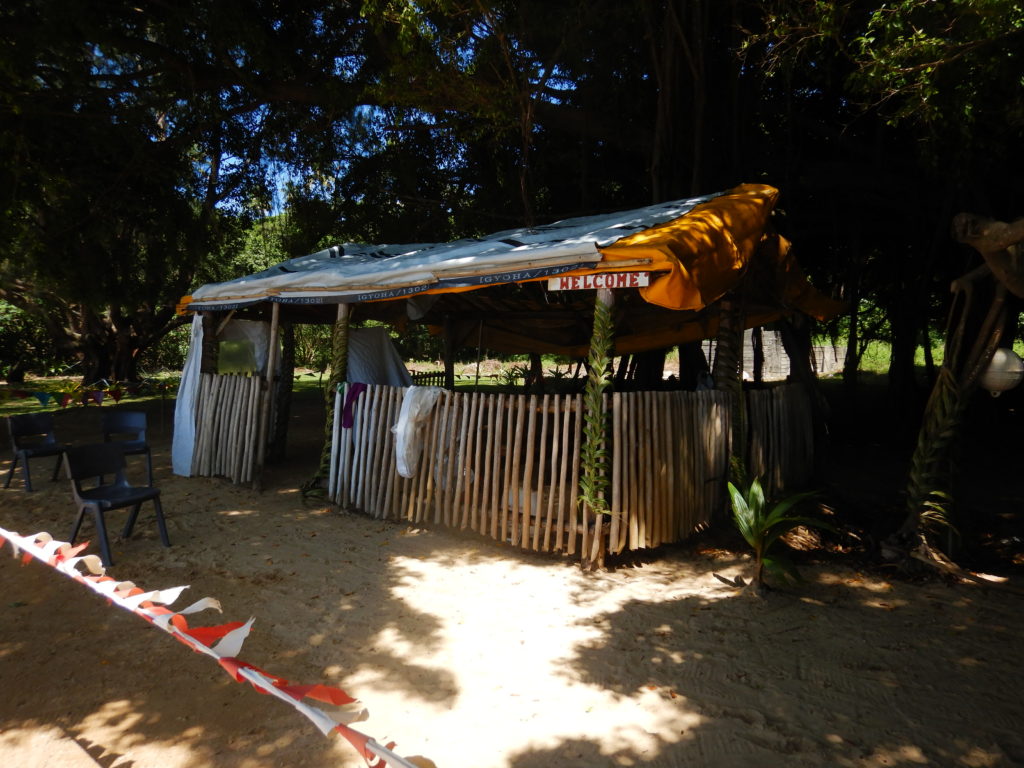
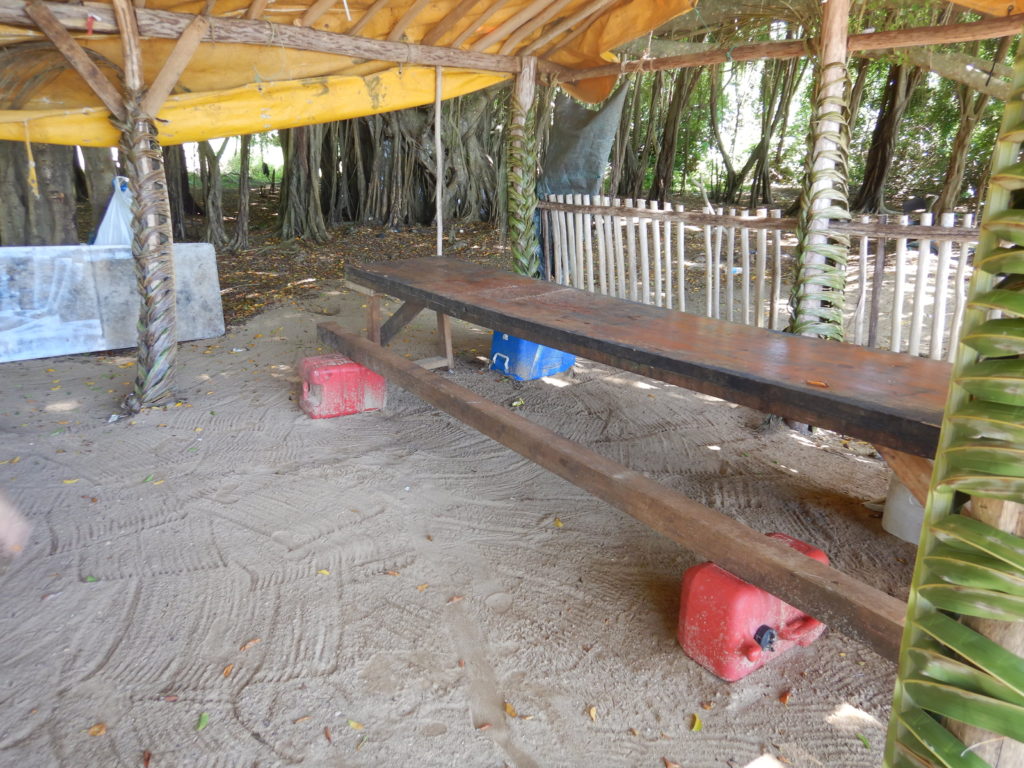
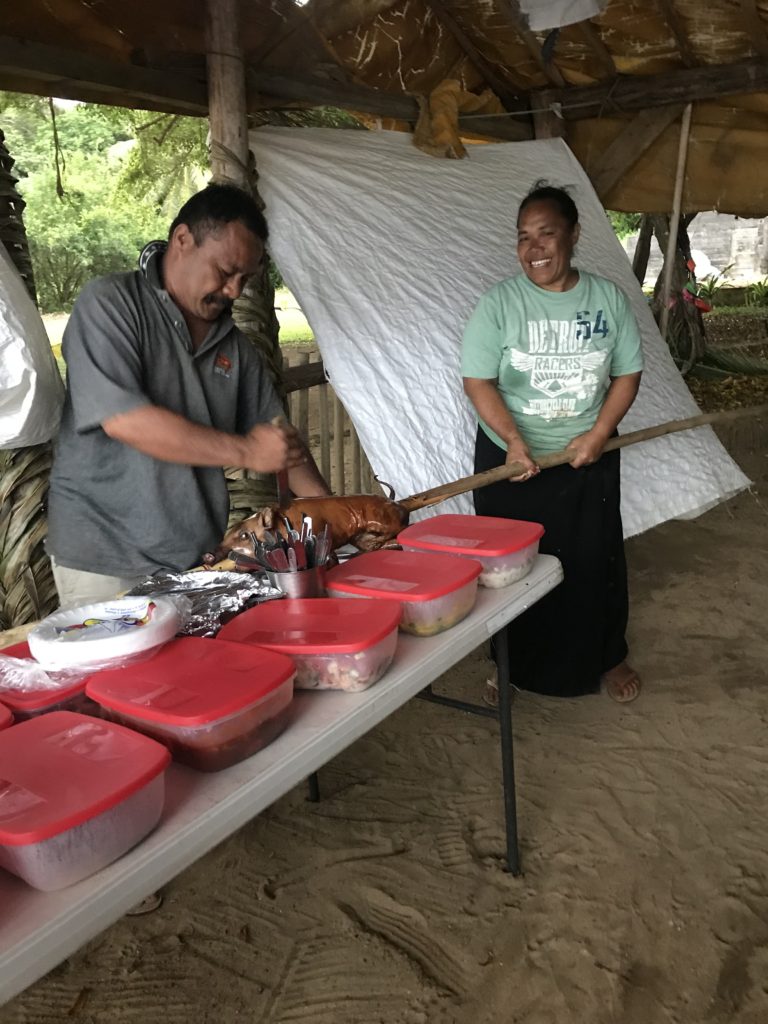
Rick and I were forced to examine our own reactions to these requests. We wanted to be helpful, of course. Even in the U.S. culture, being generous and helping people out when they need it are generally considered positive traits. But only to a point, right? After a certain point, we feel put upon or taken advantage of, right? And we also expect that such requests for assistance will be made only when no other options are available, because there is a certain unspoken shame in asking for help, especially from strangers, am I right? Maybe even a sign of weakness? The way people have a disdain for beggars? Describing the U.S. culture, I believe it is fair to say that there is more pride to be gained in being able to do it yourself, and being self-sufficient, than there is in taking pride in helping someone else out. Something about your own bootstraps, cowboys, the open range, etc. I, for one, was certainly raised like that.
Now call me naive, but I think it is actually possible in the different paradigm of the Tongan collectivism culture, that there is almost no pride at all to be gained in doing something yourself, but lots of pride in helping someone else out. So asking for help could really just be a way to offer an opportunity to the helper to feel better about themselves, and to increase their status in the community, if applicable.
So in that context, the last minute request from the family for the wrench was not at all unusual, even if we never got it back. Or better yet, we could have dropped the anchor back down and helped repair the chain saw. That would have been more the Tongan Way, especially given the diminished value they place on schedules compared to social interaction.
Likewise, the request for a bottle of alcohol shocked us, not only because drinking is not really encouraged in this heavily Christian culture, but also, and maybe because of this, alcohol is really expensive here! But the boy did not want the alcohol for himself. He didn’t even want it to share with friends and or at a family gathering. He wanted it because he wanted to buy a pig from a man on a neighboring island so the boy could put on a feast for the church he belonged to. A bottle of alcohol was the price his neighbor wanted for his pig. The feast was to be free to all the members of his church, and their guests, as a way to show his respect for the church and gain higher stature in his community. And the boy and his family live alone in a small house they built, mostly from palm fronds, on an island with no electricity and no indoor plumbing, so it is not like they are getting rich from these favors.
Some friends of ours, a family of four on a boat named Alondra, had a similar experience in the neighboring Tonga island group of Ha’apai, even more remote than the Vava’u group where we were. They befriended a family who had been given a propane-powered water heater by a relative because the elder in the family wanted to spend his last years on earth taking warm showers for the first time in his life. But the family had no idea how to install it, none of the plumbing parts, and no one with the expertise to help them, so it just sat in a box for months. Alondra came along, assessed what was needed, sailed 100 miles south to the main island to pick up the parts, returned and installed it for them. That is the Tongan Way, which our friends embraced.
Time
And then there is the whole question of time, a never ending source of frustration and misunderstanding by most Palangi. I should have known Tonga’s sense of time would confuse me – heck, we arrived in Tonga from the East, and all of a sudden it was a day later than it had been the moment before. We had crossed in International Date Line. That was confusing enough, especially when scheduling telephone appointments with folks in the U.S. Their Monday was my Tuesday, but three hours later. Holy cow. It really brought home how the concept of time is no more than a human construct. But in Tonga, beyond that obvious difference, as the Cultural Atlas states,
“there is a general attitude that what could be done today, could be done tomorrow. This sentiment towards time is not considered lazy but rather an expression of a less worried approach to life. Moreover, people tend to prioritize the present moment over concerns for the future, and prioritize social interaction over time commitments. As a result, many Tongans are incredibly hospitable, generous and find hastiness during social interactions to be rude.”
A true embodiment of the “Be Here Now” concept!
As you can imagine, Palangi (foreigners) have a hard time with this. One couple we met were on a one-week vacation to charter a sailboat and swim with the whales. On the date they had scheduled for the swim, the boat driver failed to show up because he stayed too long at a party the night before. WTF? Even the Tongan national airline’s schedule is so unreliable that the airline employees themselves warned us to book the first flight a day in advance of our connecting flight, in hopes that at least one of the flights would depart that day, and to check back regularly for schedule changes. The ferry and cargo ship schedules are equally undependable, albeit mostly due to the weather.
It can be annoying, but once you get used to it, life is really much more relaxing and enjoyable when you aren’t operating under deadlines, and much more restorative when you are encouraged to stay longer talking with a friend than going on to your next commitment.
Is Tonga “Third World?”
Rick and I were asking each other this question, before I even realized that “Third World” is actually a term that became obsolete after the Cold War with the former USSR ended, since Third World nations were defined by their lack of allegiance to the two major powers. But it still has meaning for us old farts, in the sense of being a developing nation. So, is it? Well, most homes are connected to electrical power; if not on the main island, the electrical power seems to come from solar arrays – each small town on remote islands seems to have some solar. The whole two weeks we rented an Airbnb at the end of October while decommissioning the boat, we had power, which is more than we could say for most of Northern California during that same period! Haha! (California was having scheduled blackouts imposed by the local power company, allegedly for fire suppression). And most of those same homes have indoor plumbing. We had a clothes washing machine in our Airbnb, and I think most people do, although they hang their clothes out to dry rather than wasting power or fuel on a dryer. But I actually think that drying clothes in the sun and wind is a more civilized, eco-friendly approach anyway, especially in a climate where the clothes at one end of the line are practically dry by the time you finish hanging the other end!
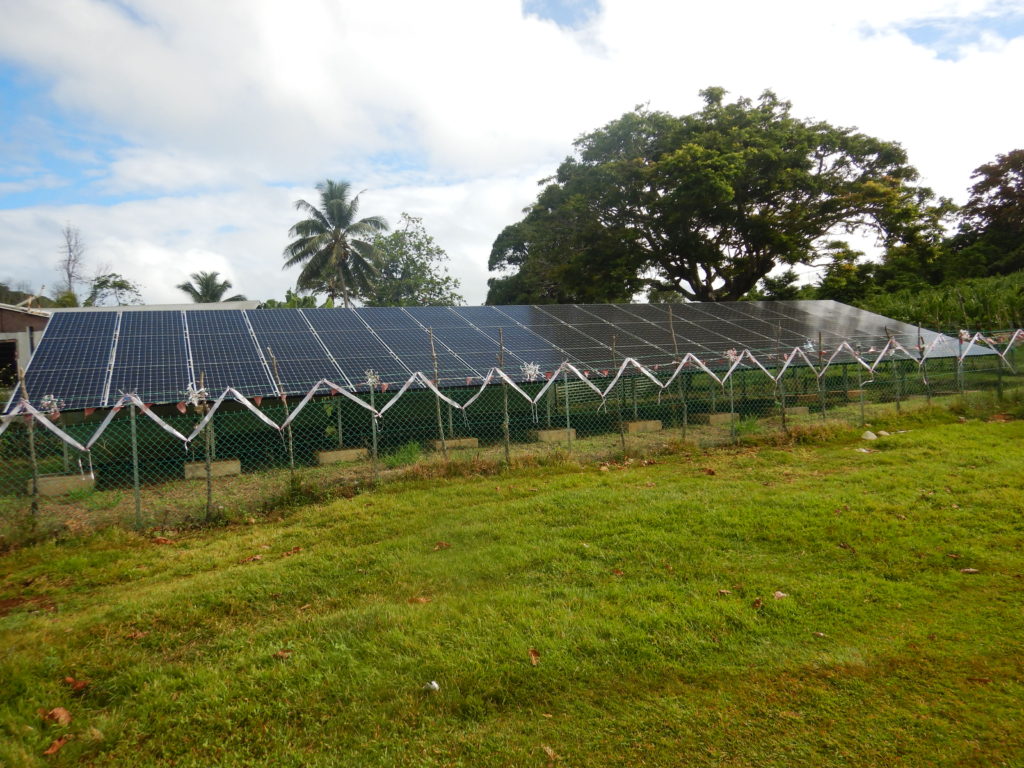
Thanks in part to US AID and the government of Japan, water catchment systems are associated with most houses. It rains all year around so as long as you are water-conscious, your tank should have enough water for most bathing and household functions. In the only real city in Vava’u, called Neiafu, which is still a fairly small town where everything is within walking distance, there is also clean, plumbed ground water available, although the limestone nature of the water table makes the water a bit hard. So does that pull Tonga out of the “developing world” status?
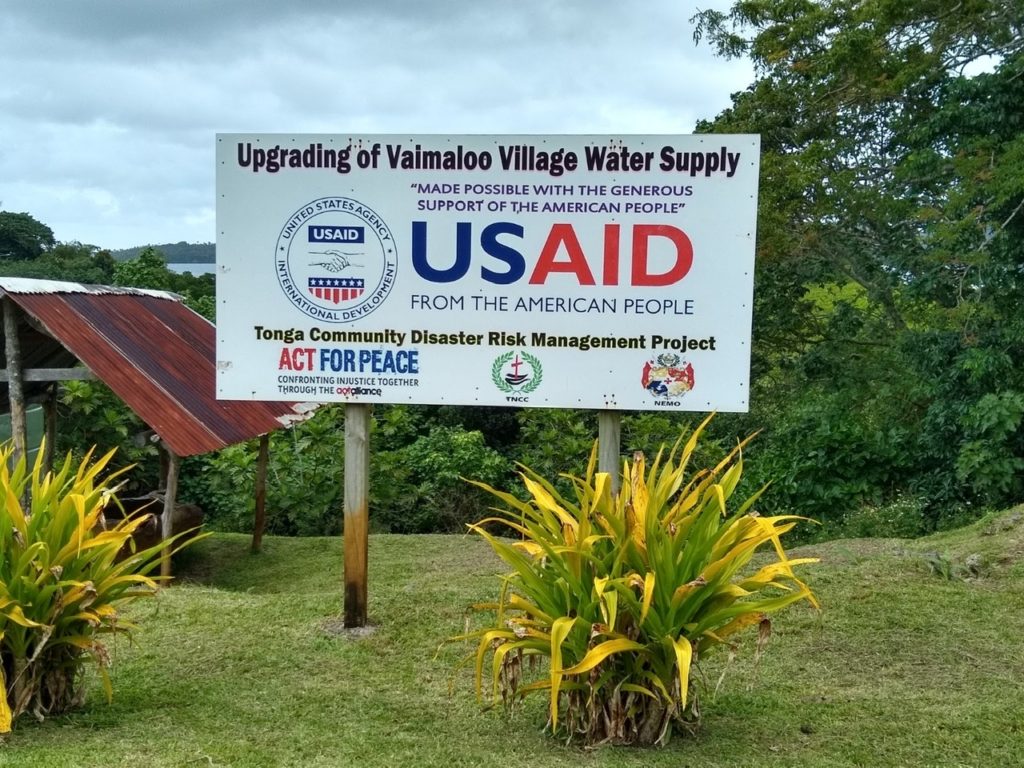
We are not sure. The roads are questionable, with potholes and failed pavement the norm, and dirt roads everywhere but the main thoroughfares. The grocery stores are small and barely lit, and only carry essentials. Don’t expect pâté, pesto, sun-dried tomatoes in a jar, or frankly anything resembling a Trader Joe’s! Most people make milk and yogurt from powdered milk. All meats and chicken are frozen, shipped from New Zealand. You might have to shop at five or six stores to get everything you need for a few meals. Eggs are fresh and never refrigerated. Papaya, watermelon, bok choy, limes and lettuce sold in the outdoor market were all picked that day, and the only other vegetables and fruit you get are other items grown locally or something that lasts for a long time so it can be shipped from New Zealand without refrigeration, like apples and potatoes.

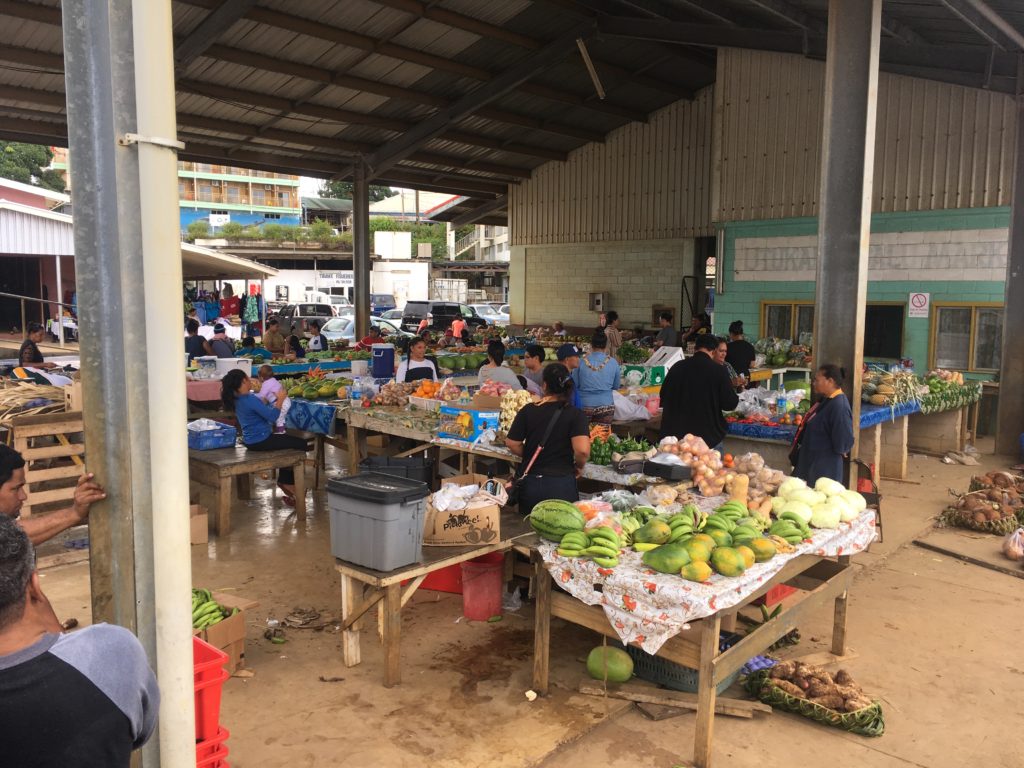

We are still trying to understand the educational system. Attending school through sixth grade is required by law. There are government-run schools but they don’t cater too much to kids with special needs, and there is an abundance of church-run schools. All are considered pretty good schools. English is a required subject, and some schools teach entirely in English. All students must wear the uniform of their school. After sixth grade, all students are tested, and only the top scoring students qualify for continuing education in the public schools, but church-run schools again fill the gap. Graduation from high school requires seven years of study past the sixth grade. Higher education is not free but the cost is apparently within reach of most families. Most high schools are only in the major towns so many students must live away from home with other family members to attend high school. The teenage son we met in the remote anchorage had studied a year or two in high school but then had to stay home to help out, but intended to return. The son of a woman who sells her family farm’s fruits and vegetables in the open market was on break from studying at the university on the main island, 200 miles away.
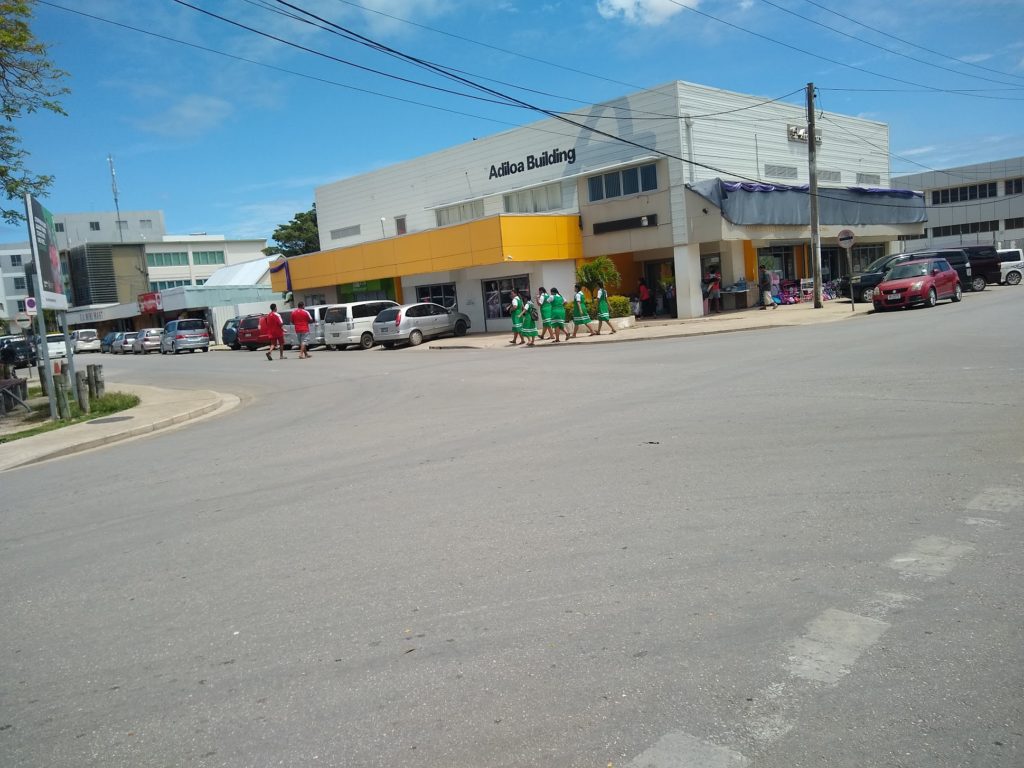
We are glad we didn’t have any medical issues when we were in Tonga: the hospital didn’t look very impressive.
So, the level of development is not what it is in the U.S., and I suppose one would still call Tonga a developing nation. Probably the determining factor is that they still have a large non-monetary sector: people who live on subsistence farming and trading, but do not exchange money. They certainly don’t have much industry; even tourism is very low.
Other Characteristics
A few of the other features of Tongan society we observed include the following:
- The honor of being old. The woman pictured below was singled out by the announcer at the school presentation we attended as being the “oldest teacher,” as though she was respected more because of her age. I thought of how few people in the U.S. would be proud to announce to strangers that they were the oldest. How different this culture is from ours!

- A different view of having special needs. At the school event, the announcer was proud to state that their school specialized in supporting children with special needs. Then out came this lovely little girl, whose left side appeared to be deformed, and who had difficulty walking. Rather than hiding her disability, she was encouraged to perform a dance she had been practicing, complete with her boy backup dancers. The crowd applauded loudly and she was all smiles.

- As government employees, as students, for church or for special occasions, men wear wrap-around full-length skirts, called Tupenu’s, and everyone wears a woven mat around their waists.
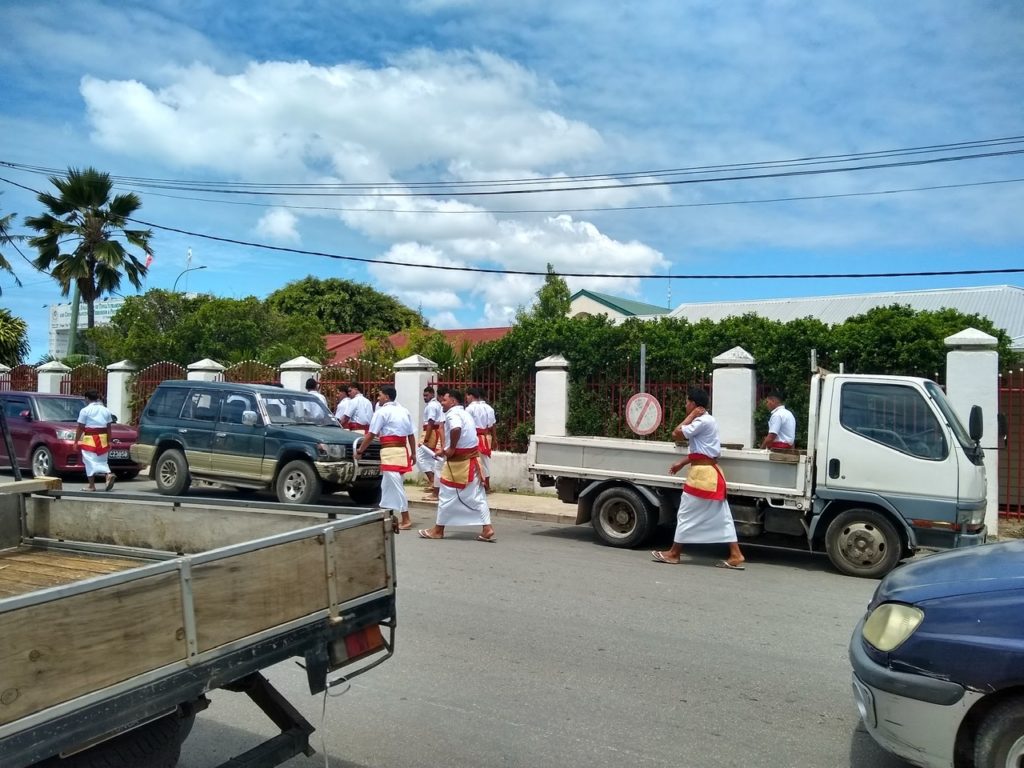
- No one goes out on Sunday because by Tongan law, it is a day of rest. All the stores are closed. People spend their Sunday either at multiple services of church, singing in multiparty harmony, socializing or feasting. Even sports, kids’ rugby games, swimming and snorkeling are prohibited.
- Homosexuality is technically illegal, but fakaleities are perfectly accepted. A fakaleity is a transvestite. According to friends who live in Tonga, effeminate men are accepted here in Tonga, routed in a long-standing Polynesian tradition that allowed the youngest son to be raised as a girl to help with family obligations for which the females were traditionally held responsible, although rarely is that practice undertaken today. A “straight” man can sleep with a fakaleity without being labeled as gay, and, if married, without the act being considered adulterous.
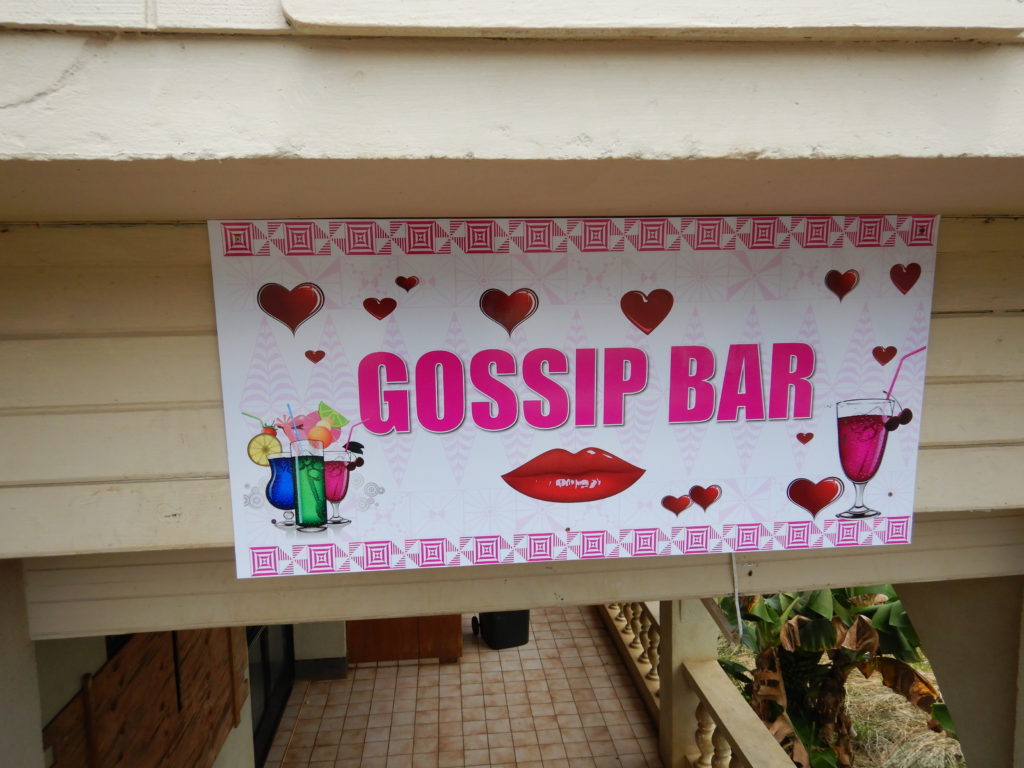
- Pigs are everywhere. They let them out of their yards to roam and feed wherever they choose during the day, and then the pigs somehow all wander home, like dogs, at the end of the day.
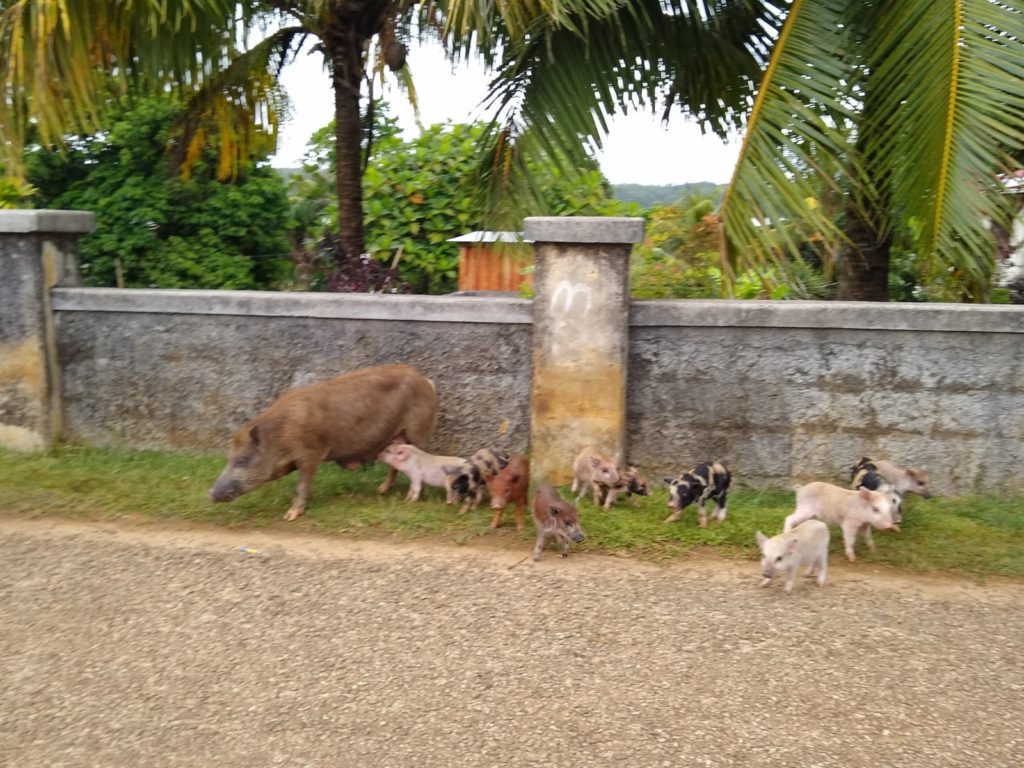
- Flying fruit bats, who come out at dawn and dusk, are considered holy and are protected by the King from being hunted or killed.
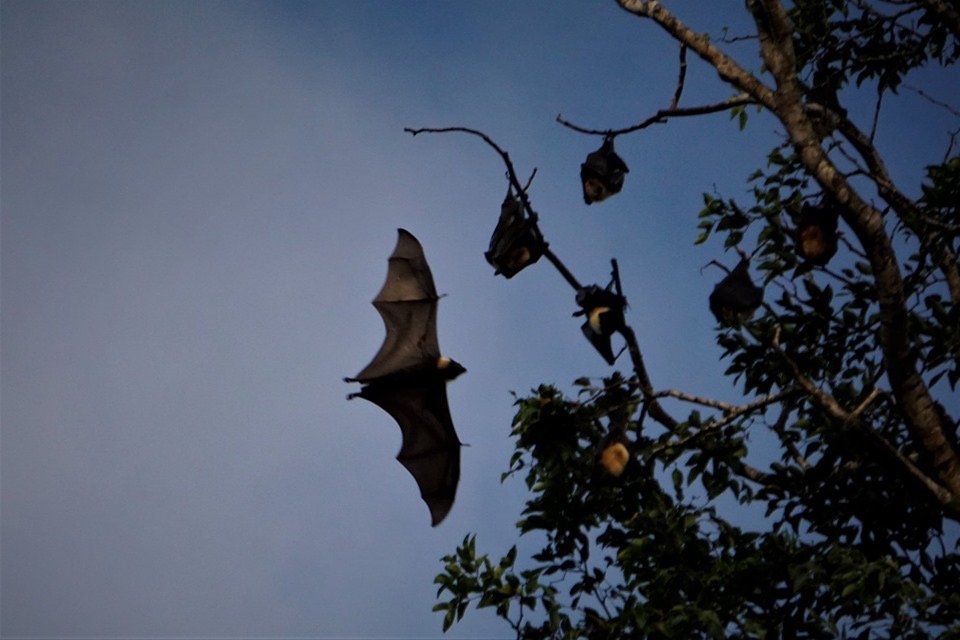
- Rugby is the national sport. Tonga has competed in the Rugby World Cups at least six times since 1987. And kids play it everywhere, often a gentle form, like “touch football,” so kids of many ages can play together and no one gets hurt.
Many years ago, after living and working in Mexico for four years, I reread something I had written about Mexico after having only visited it a few times, and I found what I wrote to be somewhat naive, idealistic, and even a bit condescending. Something to the effect of, “they are poor but they are happy.” I hope I am not too terribly guilty of doing the same thing with Tonga. After all, we have only been here for three months, we don’t speak Tongan, and we are not even as immersed in the culture as we would be if we were earning a living here or volunteering. We are seeing the culture mostly from the point of view of the outlying islands, not the main cultural center of Tongatapu. But compared to most people’s one or two week vacations, I would like to think that we captured a sense of the culture during our three months there. I do recognize that all cultures are quite complex, and all have their lessons to learn from, both in the sense of what we want to take with us and what we want to leave behind.
But above all that, I believe the true value in witnessing other cultures is to be reminded, each time I see a person from another culture react to something differently than I do, that there are different ways to approach every circumstance, each of which is legitimate within the context of their own paradigm. And the more I become educated about other people’s paradigms, the more understanding of and compassion I can have for their reality, and the more tools I have to change my own paradigm should I wish.
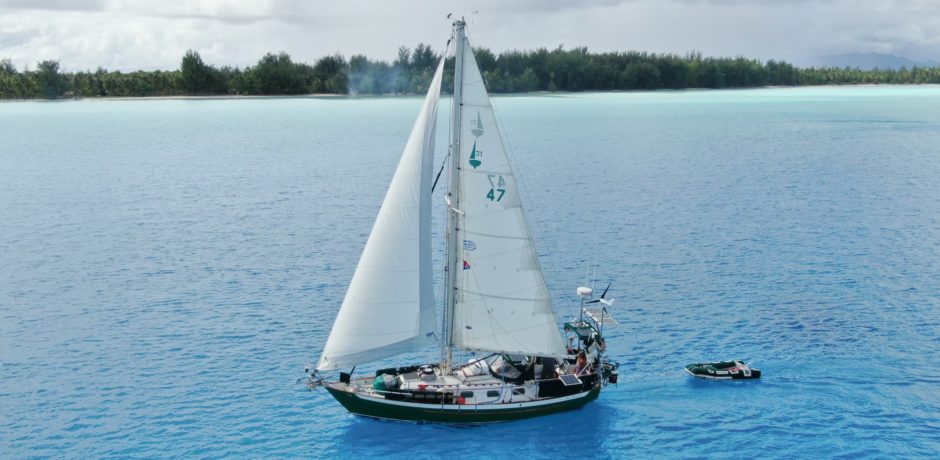
Loved reading about your experiences! Sounds like you had a lovely time. I’m so glad you decided to continue heading West! Cheers, Laura -sv Maia
Enjoyed reading about your time in Tonga…looking forward to your next instalment. Im sure your enjoying being home…when to you return to Cool Change?